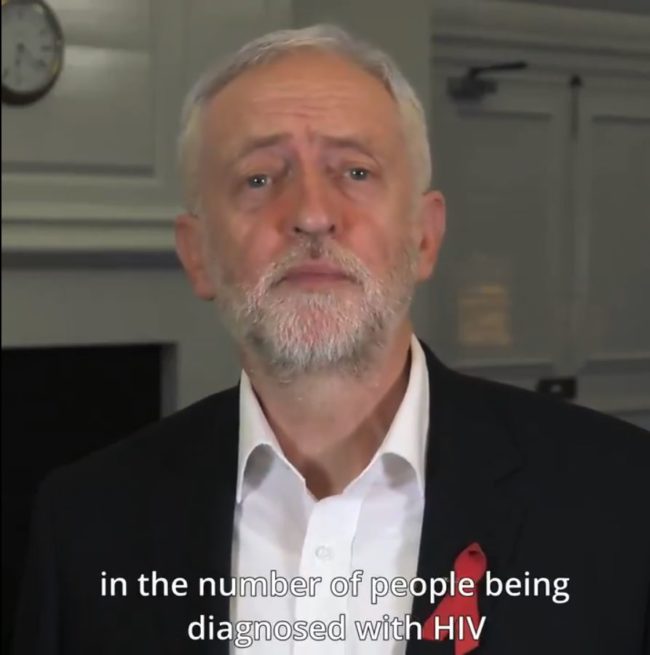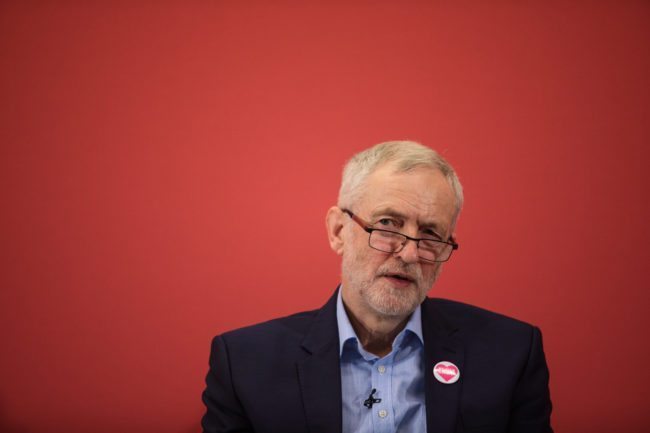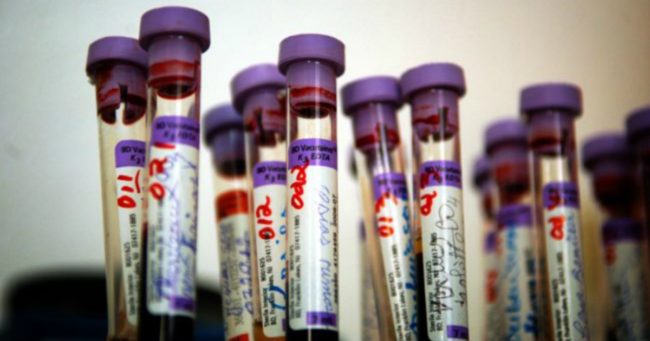Jeremy Corbyn challenges government over sexual health cuts on World AIDS Day

BRIGHTON, ENGLAND – SEPTEMBER 29: Labour leader Jeremy Corbyn delivers his first speech as leader of the party on September 29, 2015 in Brighton, England. The four day annual Labour Party Conference takes place in Brighton and is expected to attract thousands of delegates with keynote speeches from influential politicians and over 500 fringe events. (Photo by Jeff J Mitchell/Getty Images)
Labour leader Jeremy Corbyn has attacked government cuts to the sexual health sector, as party leaders released messages marking World AIDS Day.
In a message marking World AIDS Day today, Mr Corbyn said: “Since the last World AIDS Day there has been a reported fall in the number of people being diagnosed with HIV for the first time since the 1980s.
“Frequent testing and the HIV prevention drug PrEP are major contributing factors but in some parts of our country cuts of more than 20% have already led to GUM service closures, and £531 million more will be cut from the public health budgets in this Parliament.
“These cuts will impact HIV transmission rates right at the moment our efforts are beginning to pay off. So the Tories must end their health cuts and we must make sure infection rates fall in all of our communities and in every country around the world.
“Worldwide 37 million people live with HIV and nearly 2 million children.

Corbyn posted a video to social media
“This year, the United Nations’ campaign for World AIDS Day, ‘My Health, My Right’, because everyone has the right to accessible and quality healthcare free from discrimination and investments in treatments we can end AIDS.
“We must also end the stigma and prejudice. This is why I will be proud to wear the red ribbon on Friday, a sign of solidarity and respect.
“I hope that you will join with me in supporting World AIDS Day.”

(Photo by Jack Taylor/Getty Images)
Labour’s Kate Osamor also branded the government’s approach to HIV/AIDS “shameful”, over cuts to international development funding.
In her World AIDS Day message, Prime Minister Theresa May called for people to “end the stigma” for good.
Earlier this year a new report revealed that HIV and sexual health services are stretched to breaking point, amid warnings of a growing crisis in the sector.
Public Health England published the report into the current picture of sexual health and HIV services across England.
The report flagged concerns from service commissioners about a potentially-devastating combination of a decrease in capacity and an increase in demand, which has stretched sexual health services to their limit.
The report cited funding issues as one of the main reasons for a decline in services, as struggling local authorities are forced to cut sexual heath funding.
2013 healthcare reforms have also led to a “fragmentation of the system” for providing sexual health care, as various services are funded and maintained in drastically different ways.
The report says: “Whilst all commissioners had concerns about future funding, concerns were most pronounced in local authorities.

“The previous cut in the Public Health Grant was a recurring concern. Analysis of the figures would indicate that there has been a reduction in spend of the Public Health Grant of 2.1% between 2013-14 and 2015.
“This is in line with the 2.3% overall grant reduction.
“Within these headline figures there has been a realignment of spend with a decrease of 8% on STI
treatment and testing but increases in spend on contraception and promotion and prevention”.
It adds: “Respondents to the survey expressed concerns about the impact of future cuts and whether current provision was sustainable.
“Local authorities described moves to reduce access to specialist services and redirect those requiring less specialist care to GPs and pharmacies.”
It warned: “There was concern that resources would not be maintained for sexual, reproductive health and HIV services.
“The discussions on future funding mechanisms for public health are far wider than sexual health. However, the importance of it as part of the Public Health Grant needs to inform the ongoing national discussions on funding.”

(Photo by Christopher Furlong/Getty Images)
Ian Green, Chief Executive of Terrence Higgins Trust, said: “Demand is rising, while budgets are shrinking; HIV and sexual health services are reeling from a combination of national government funding cuts to local authorities, a lack of prioritisation by some local councils, and lasting damage from the Health and Social Care Act, which led to fragmented and uncoordinated commissioning.
“This cannot go on.
“Without additional investment in HIV and sexual health services, it is unclear how a sexual health crisis can be avoided.
“In these challenging times, commissioners need to work closely alongside affected communities and third sector organisations to find innovative ways to deliver services that meet the need – and clear unmet need – of local people at risk of HIV and poor sexual health.”
And earlier this year a leading HIV/AIDS charity reported “alarming” cuts to HIV support.
The National AIDS Trust (NAT) alleged that there has been an average cut of 28% in spending on HIV support services between 2015 and 2017.
In some local authorities, the cuts have been as large as 50% to vital services.
Deborah Gold, chief executive of NAT, said: “The disappearance of support for people living with HIV in England and Wales is extremely alarming,” she said.
“This trend leaves people living with HIV without the support they need to live well.
“This is dangerous and short-sighted, creating a need for more urgent and more expensive care for people living with HIV further down the line.”
NAT’s Chief Exec added: “With this evidence of widespread decommissioning of crucial and, at times, life-saving services, which ensure people living with HIV can manage their long-term condition, we are calling on NHS clinical commissioning groups (CCGs) to accept their role in ensuring needs are met.
“Support services alleviate the pressure on clinical services, meaning their provision is a responsibility CCGs are currently not fulfilling.”

